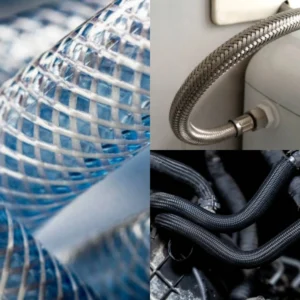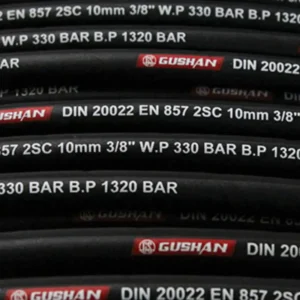The diameter of your pressure washer hose can drastically affect your machine’s performance, yet many of us don’t give it a second thought. The choice between a 1/4 vs 3/8 pressure washer hose is more than just a matter of size; it’s about optimizing your water flow and pressure to achieve the best possible clean.
Why Does the Hose’s Diameter Matter for Pressure Washing?
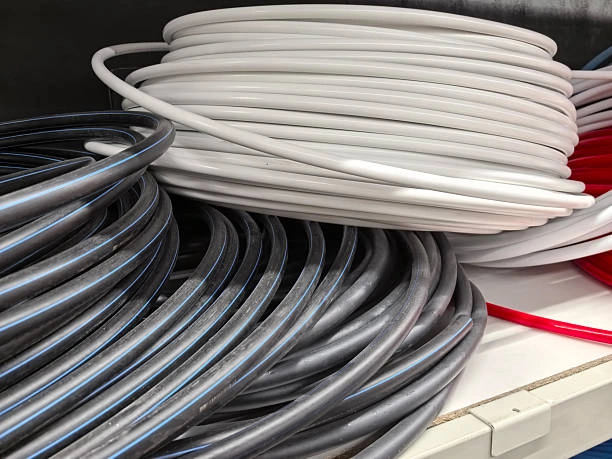
You might think that as long as the hose fits, it will work just fine. However, the internal diameter of the hose directly impacts the water’s flow and pressure. This is a concept rooted in fluid dynamics. As water travels through a hose, it encounters friction against the hose’s inner walls, which causes a loss of pressure. This phenomenon is known as “pressure drop.” A narrower hose, like the 1/4-inch model, has a greater surface area relative to its volume, creating more friction and a more significant pressure drop over a given distance.
3/8-inch hose allows water to flow with less resistance. This means less friction and a smaller pressure drop. For anyone looking to maximize their machine’s output, especially over longer distances, the hose diameter becomes a critical factor in maintaining the advertised PSI and GPM at the nozzle.
Is a 1/4-Inch Pressure Washer Hose Good Enough?
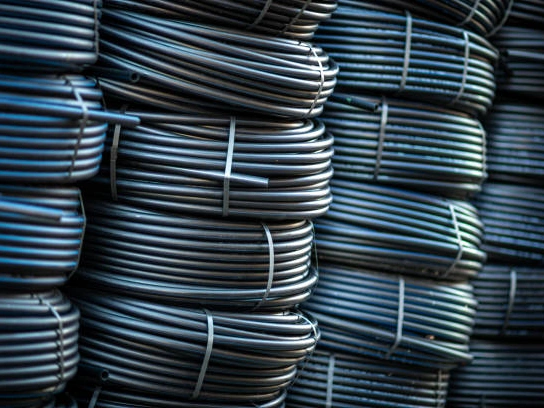
The 1/4 pressure washer hose is a common choice, especially for residential users. It’s often the standard size included with entry-level electric and small gas pressure washers. This size offers several advantages: it’s lighter, more flexible, and generally more affordable. For small jobs like cleaning patio furniture, a grill, or a small deck, a 1/4-inch hose is perfectly adequate. It pairs well with machines that have a lower GPM (gallons per minute) rating, typically 2.5 GPM or less.
However, its limitations become apparent on larger projects. The significant pressure drop means that a machine rated at 2,000 PSI might only deliver 1,800 PSI at the nozzle, particularly if you’re using a long hose. While a 1/4-inch hose is great for maneuverability and light tasks, we recognize its shortcomings when we’re trying to achieve a professional-level clean on a large surface.
Why Do Professionals Prefer a 3/8-Inch Pressure Washer Hose?
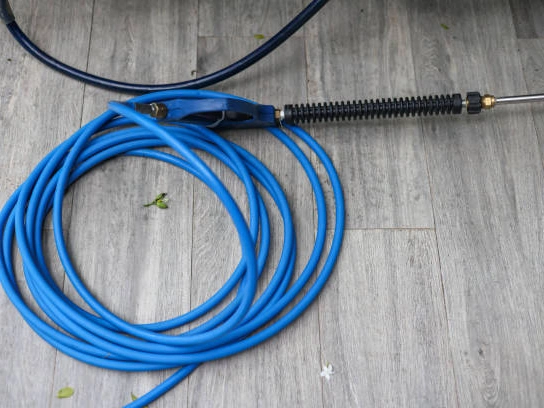
The 3/8 pressure washer hose is the industry standard for professional power washers and commercial-grade machines. This larger diameter allows for a much greater volume of water to flow with minimal resistance. For machines rated at 3.0 GPM or higher, a 3/8-inch hose is essential to prevent a severe pressure drop. Professionals rely on consistent and full power to get jobs done efficiently and effectively, and the 3/8-inch hose delivers exactly that.
The benefits of a 3/8-inch hose go beyond just flow. It allows a machine to operate at its full potential, providing the full advertised PSI and GPM at the spray gun. While a 3/8-inch hose is heavier and less flexible than its 1/4-inch counterpart, this trade-off is well worth it for anyone tackling large driveways, two-story homes, or commercial cleaning projects.
How Does Hose Length Affect the Choice Between Sizes?
The length of the hose is a crucial factor that amplifies the differences between the two sizes. A shorter hose (up to 50 feet) will have less pressure drop regardless of the diameter, but the difference becomes very clear on longer runs.
- 1/4-inch Hose: On a 100-foot run, a 1/4-inch hose can see a pressure drop of 25-30% or more. A machine rated at 3,000 PSI could be delivering less than 2,000 PSI at the nozzle.
- 3/8-inch Hose: A 3/8-inch hose on the same 100-foot run will only lose about 10-15% of its pressure. This means your machine’s full power is much better preserved, allowing you to work faster and more effectively.
For those of us who need to reach far-off areas without moving the pressure washer itself, opting for a longer, larger-diameter hose is the only way to maintain a strong, consistent cleaning force.
What Are the Costs and Considerations of Each?
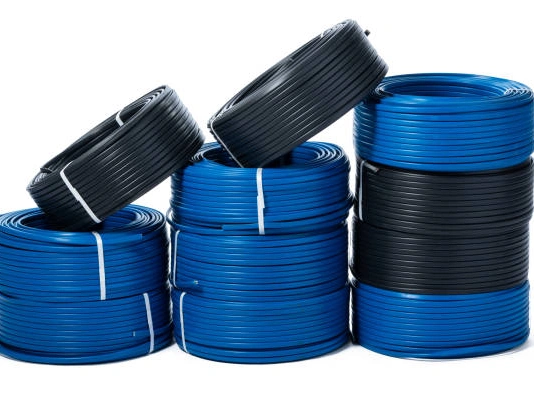
The decision between a 1/4 vs 3/8 pressure washer hose also comes down to cost and practicality.
- 1/4-inch Hose:
- Cost: More affordable, with replacement hoses being readily available and cheaper to purchase.
- Weight & Flexibility: Lighter and easier to maneuver, making it less physically demanding to use for long periods.
- Best For: Light-duty electric and gas washers (under 3.0 GPM), small residential jobs.
- 3/8-inch Hose:
- Cost: More expensive than a 1/4-inch hose. The fittings and quick-connects are also typically more robust and costly.
- Weight & Durability: Heavier and stiffer, but also much more durable and resistant to kinking. This is a pro-grade tool.
- Best For: Medium to heavy-duty gas washers (3.0 GPM and up), commercial use, and large-scale residential projects.
How to Choose the Right Hose?
Choosing between a 1/4 vs 3/8 pressure washer hose is about matching the hose to your machine and your typical projects.
- Choose a 1/4-inch hose if… you own a standard electric pressure washer or a small gas model and mostly use it for quick, light tasks around the house. It’s a great choice for convenience and affordability.
- Choose a 3/8-inch hose if… you have a powerful gas-powered machine (3.0 GPM or more), are working on large properties, or are a professional power washer. The investment is worth the increased efficiency, power delivery, and time saved.
For many homeowners, the standard 1/4-inch hose that comes with their machine is a good starting point. However, if you find yourself struggling with low pressure on big jobs or have upgraded your machine, upgrading your hose to a 3/8-inch model could be the single most impactful improvement you make to your power washing setup.
Conclusion
A common choice is between 1/4-inch and 3/8-inch pressure washer hoses. While both sizes can be connected to your machine, they significantly impact water flow, pressure drop, and overall efficiency. The smaller 1/4-inch hose is standard for many home machines, while the larger 3/8-inch hose is preferred by professionals.


